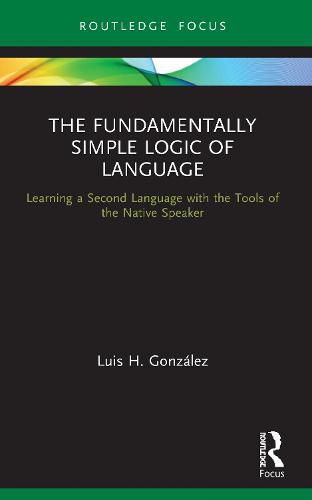Readings Newsletter
Become a Readings Member to make your shopping experience even easier.
Sign in or sign up for free!
You’re not far away from qualifying for FREE standard shipping within Australia
You’ve qualified for FREE standard shipping within Australia
The cart is loading…






The Fundamentally Simple Logic of Language: Learning a Second Language with the Tools of the Native Speaker presents a data-driven approach to understanding how native speakers do not use subject and direct object to process language.
Native speakers know who does what in a sentence by applying intuitively two simple inferences that are argued to be part of universal grammar. The book explains and exemplifies these two inferences throughout. These two inferences explain the native speaker's ease of acquisition and use, and answer difficult questions for linguistics (transitivity, case, semantic roles) in such a way that undergraduate students and second language learners can understand these concepts and apply them to their own language acquisition. While Spanish is used as the primary example, the theory can be applied to many other languages.
This book will appeal to teachers and learners of any second language, as well as linguists interested in second language acquisition, in second language teaching, and in argument structure.
$9.00 standard shipping within Australia
FREE standard shipping within Australia for orders over $100.00
Express & International shipping calculated at checkout
The Fundamentally Simple Logic of Language: Learning a Second Language with the Tools of the Native Speaker presents a data-driven approach to understanding how native speakers do not use subject and direct object to process language.
Native speakers know who does what in a sentence by applying intuitively two simple inferences that are argued to be part of universal grammar. The book explains and exemplifies these two inferences throughout. These two inferences explain the native speaker's ease of acquisition and use, and answer difficult questions for linguistics (transitivity, case, semantic roles) in such a way that undergraduate students and second language learners can understand these concepts and apply them to their own language acquisition. While Spanish is used as the primary example, the theory can be applied to many other languages.
This book will appeal to teachers and learners of any second language, as well as linguists interested in second language acquisition, in second language teaching, and in argument structure.